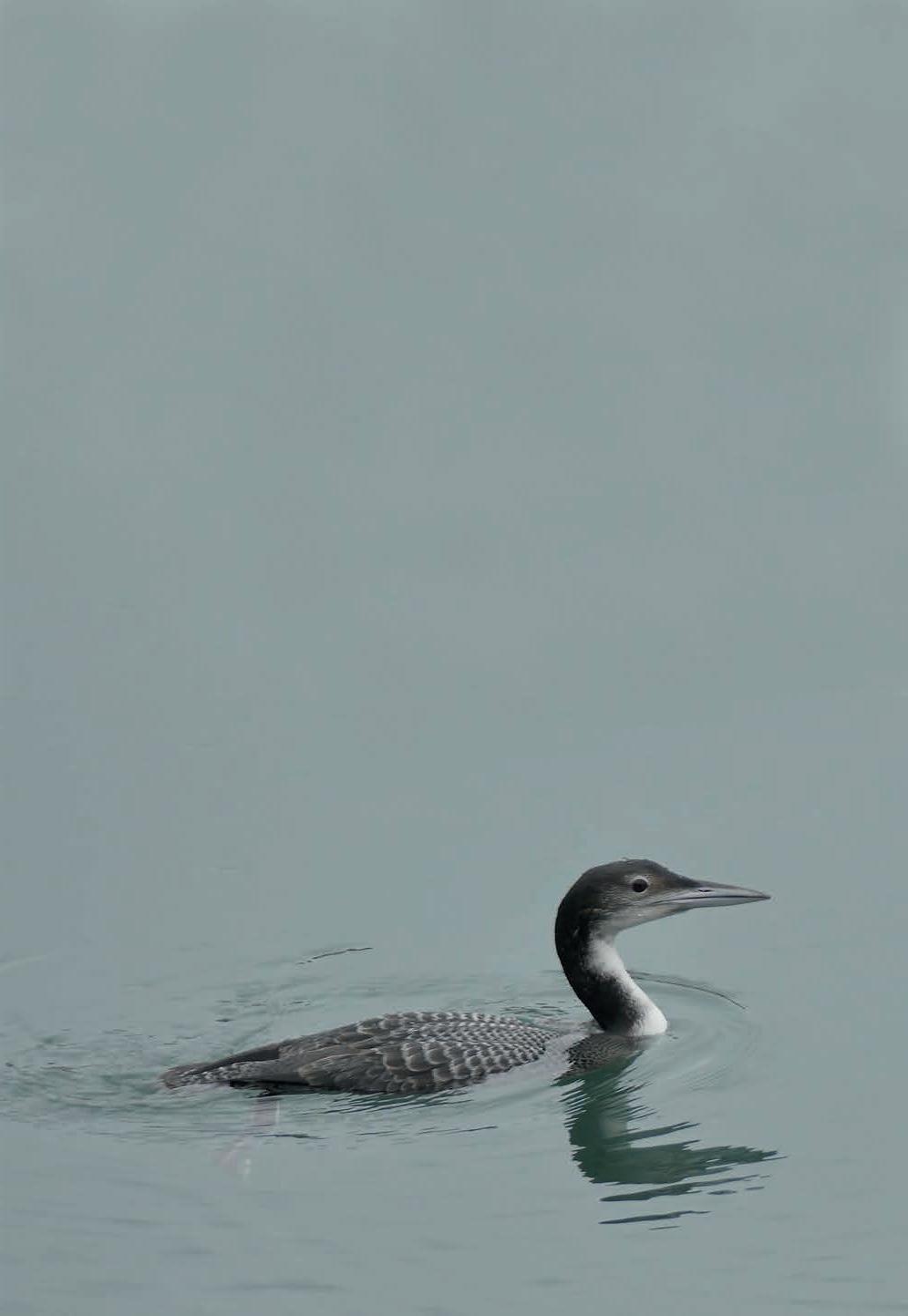
10 minute read
Images to soothe the soul by Chris Slack
A Sting in the Tail?
Torbay is renowned for its wintering birds, attracting birdwatchers from far and wide. However, tiny warblers may also be seen here, bene ting from our (mostly) mild weather. Mike Langman explains how these smaller birds survive and the risks they run wintering in the Bay.
Advertisement
Winter is nearly over… According to the meteorological de nition, spring starts on the 1st March. Now that seems very early, perhaps the astronomical season is better - spring starts on 22nd March, the spring equinox, when we have an equal amount of day time and night time. In reality, here in the South West, that will be on the 17th March. However even this will seem to vary depending on the weather that day - confusing isn’t it? Just imagine how it must appear to the wildlife around us.
Here in Torbay we have birds that regularly migrate from more northern climates to spend the winter with us, like the Redwing, Fieldfare, Teal and Snipe. Tor Bay with its sheltered, east-facing aspect is an important wintering area for lesser-known wintering sea birds such as three species of Diver: Great Northern, Red-throated and Black-throated plus four species of Grebe: Great Crested, Red-necked, Black-necked and Slavonian. ere are also seaduck, Common and Velvet Scoter, Eider and occasional Long-tailed Duck. With such a great variety of birdlife Tor Bay attracts birdwatchers from not only Devon but from all over the UK, many staying several days to walk, watch and perhaps book onto increasingly popular wildlife-watching boat trips. ere is another group of much smaller birds for which Torbay, with its mild winter climate and coastal habitats, is very important - warblers. ese tiny birds are mostly insectivorous; if the insects hide away or are killed o in prolonged frosts or snow, the birds will either die with them or have to move on further south and west. Strictly speaking, birds like the Chi cha , Blackcap and Firecrest should be wintering in countries further south, even as far as Africa. During the autumn some Chi cha s, instead of immediately taking on a long arduous and dangerous migration, stage their movement, stopping for a few days or weeks, then moving on when they are fattened up or when food supplies run low. A few nd that our small relatively frost-free coastal marshes at Broadsands, Goodrington and Clennon Valley can o er them such a healthy population of invertebrates that the birds decide to stay.
e larger Blackcap is an interesting warbler; in parts of Europe it has altered its migration habits. Our British breeding population of this summer migrant moves away in the autumn, migrating to southern Europe and Africa. However a population from central Eastern Europe has found it can survive the winter in the milder British climate, supported by a good food supply. It was ringing schemes that proved where these birds had come from and where they go. Tiny individually coded aluminium rings were put on Blackcaps’ legs in one place only to be recovered in another part of Europe. Unlike the smaller warblers, Blackcaps have a varied winter diet of berries, fruit and insects. Our gardens with ornamental berry bushes and arti cial bird food (especially fat balls) can support a surprisingly heathy winter population of Blackcaps. e phenomenon of wintering Blackcaps is not new but has dramatically increased. ey became more abundant as a winter visitor according to a 1980s survey but there was a phenomenal 77% increase in winter numbers in the next 2007-11 Devon Birds Survey.
e Firecrest is a little di erent, although a spring migrant occurring on our coast in the spring as they move north and in the autumn as they migrate back south, they also regularly overwinter. is tiny warbler is equal in size to the Goldcrest, our smallest British bird, and weighs little more than a 20 pence piece. e Firecrest’s small size means it can survive eating fewer and smaller prey than its larger warbler relatives. Like the chi cha they only eat small invertebrates, so frost-free coastal marshes are a perfect place to survive the winter. During colder spells they can be found feeding just above the water level among reeds, picking o aphids or midges. Alternatively they move into evergreen holly bushes and ivy covering tree trunks and branches, both of which are microclimate habitats, slightly warmer than the exposed deciduous trees and scrub around them. e Firecrest is really a southern or central European bird that has successfully expanded its range north. In Devon it was rst proven as a breeding bird in 2014, but by 2020 the breeding population had grown to well over 50 pairs. It also has an increasing


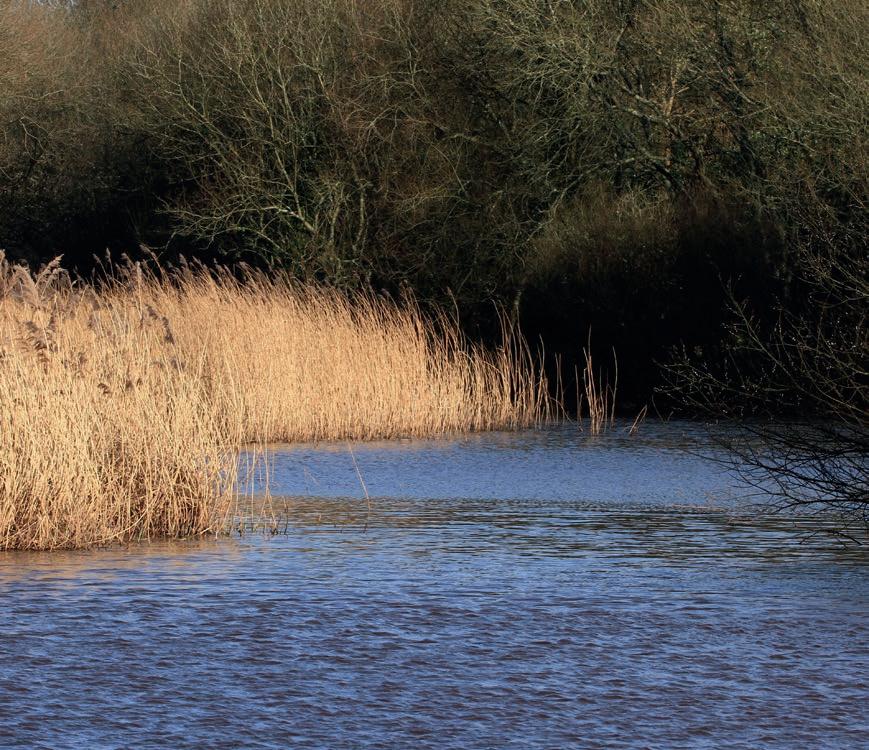

At Abbeyfield people are at the heart of everything we do Supported Housing for Independent People
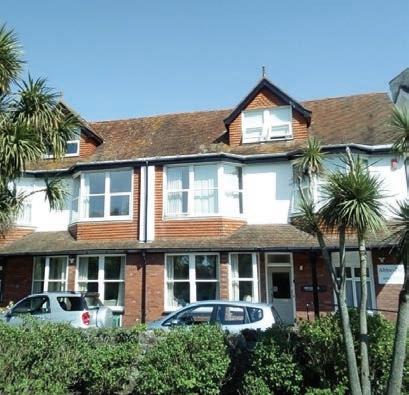
Supported Housing for Independent People
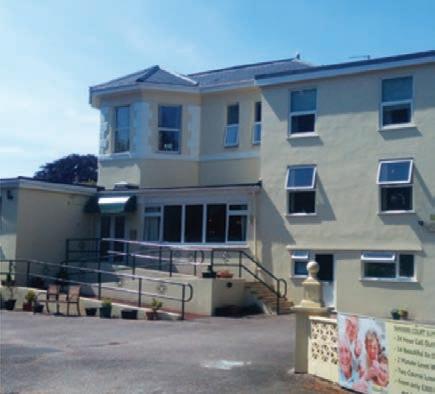



ABBEYFIELD SOUTH WEST SOCIETY
Sheltered Housing for Independent People over 55
ABBEYFIELD SOUTH WEST SOCIETYBoth Abbeyfield houses are situated in lovely areas, staff, consisting of a Manager, cooks and a cleaner boasting their own beautiful grounds. Park House in who all work together to ensure residents are happy Both Abbeyfield houses are situated in lovely areas, Paignton is situated directly opposite a beautiful park staff, consisting of a Manager, cooks and a cleaner and content. boasting their own beautiful grounds. Park House in Paignton is situated directly opposite a beautiful park and is a five minute walk from the beach. Sanders who all work together to ensure residents are happy and content. There are various activities, events and entertainment and is a five minute walk from the beach. Sanders Court in St Marychurch, Torquay, has a wonderful There are various activities, events and entertainment that take place throughout the year which the Court in St Marychurch, Torquay, has a wonderful large private courtyard and the local precinct is just a five minute walk away, with all the amenities you would expect. Both sites offer good public transport services close by, so it is nice and easy to go and explore. At our Abbeyfield houses residents find friendship and support without losing their independence and dignity. that take place throughout the year which the residents can join in if they wish. Traditional home cooked meals are provided in the dining room every day and breakfast provisions are provided for residents to have in their rooms. The weekly charge covers all utilities and food, so there are no bills to worry about, other than a BT telephone line which is necessary for the residents, large private courtyard and the local precinct is just a five minute walk away, with all the amenities you would expect. Both sites offer good public transport services close by, so it is nice and easy to go and explore. At our Abbeyfield houses residents find friendship and support without losing their independence residents can join in if they wish. Traditional home cooked meals are provided in the dining room every day and breakfast provisions are provided for residents to have in their rooms. The weekly charge covers all utilities and food, so there are no bills to worry about, other than a BT All bills are included, except telephone line & calls The rooms are unfurnished with en-suite facilities and a kitchenette area. The houses have a communal laundry, dining room, lounge and beautiful garden. Each house has a small and friendly committed and dignity. The rooms are unfurnished with en-suite facilities and a kitchenette area. The houses have a communal 24hr emergency pendant to work, so all concerns about running a house are taken away. Each room has its own 24hr emergency call system for residents peace of mind. telephone line which is necessary for the residents, 24hr emergency pendant to work, so all concerns about running a house are taken away. laundry, dining room, lounge and beautiful garden. Each room has its own 24hr emergency call system To arrange a visit or for more information telephone Each house has a small and friendly committed for residents peace of mind. the Manager at: Park House, Paignton 01803 557732 or for Sanders Court, Torquay 01803 316164. To arrange a visit or for more information telephone Or visit our website: www.abbeyfield.comthe Manager at: Park House, Paignton 01803 557732

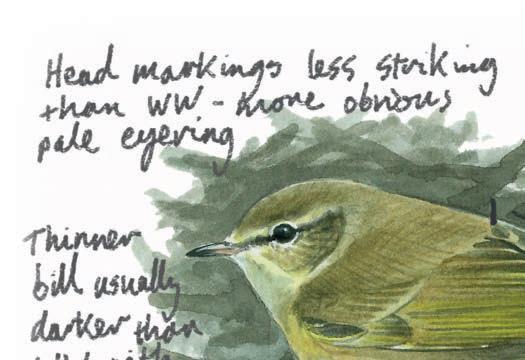
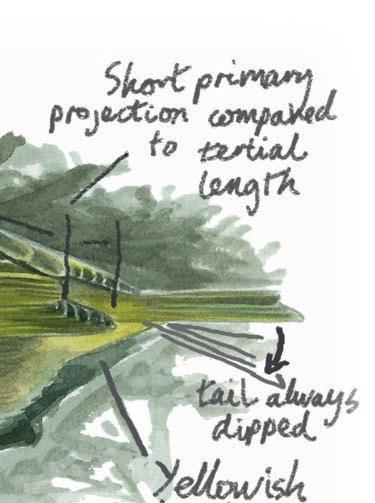
staff, consisting of a Manager, cooks and a cleaner who all work together to ensure residents are happy
winter population that has ourished over the last couple of mild winters. There are various activities, events and entertainment For all of these warblers spending a winter in Britain that take place throughout the year which the instead of migrating south is a gamble for birds with such specialist diets. Should the weather turn into a prolonged Traditional home cooked meals are provided in the dining room every day and breakfast provisions are cold spell the food supply will become limited or perhaps even disappear. In some years our winters have had a Blackcaps - Male (below) and female sting in the tail, with some of the harshest and coldest periods being at the end of February and into the early spring. We will all remember the ‘Beast from the East’ in 2018, a long period of icy winds and snow from Russia that dramatically reduced numbers of winter warblers that had made it through the ‘winter’, now killed o by the temperatures, wind and lack of food. Even resident
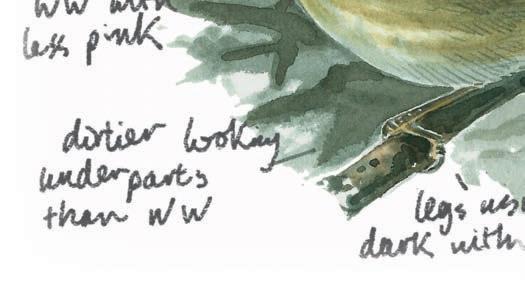



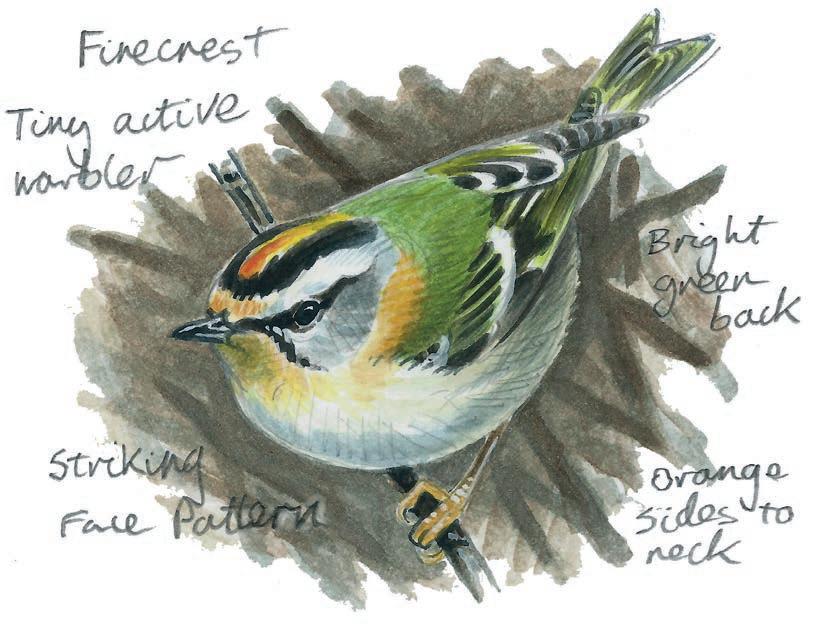
birds normally able to tolerate some frost and snow like the Wren and Goldcrest su ered with populations being decimated just when the winter was meant to be over. Going back even further in the late 1950s the Wren population around Postbridge on Dartmoor was around 500 pairs but in the spring of 1963, after the severe winter there were just four singing males left, that’s a decline of over 99%! In early March 2018 during the ‘Beast from the East’, birdwatchers were heartbroken to see larger birds like Lapwing, Golden Plover, Redwing, Fieldfare, Skylarks, Pipits and even wildfowl dying in front of them. On our beaches’ strandlines, corpses of land birds were found; these birds must have been migrating in an attempt to escape the worst of the weather only to be lost in bad weather at sea.
As tragic as it might seem, these losses are usually made up for during the following breeding seasons due to less con ict from a reduced population all trying to establish and maintain their own territories. With luck a couple of favourable warm springs and summers, with no extraordinary weather events, will mean bird populations bounce back. Small birds like Goldcrest may even rear two broods totalling twenty young in a good year!
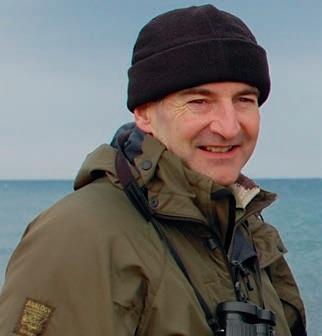

Mike Langman

Mike Langman Torbay resident, former Devon Bird Recorder, worked for the RSPB for 9 years, Chairman of Friends of Clennon Lakes, lifelong birdwatcher and naturalist, wildlife illustrator and guide. mikelangman.co.uk










